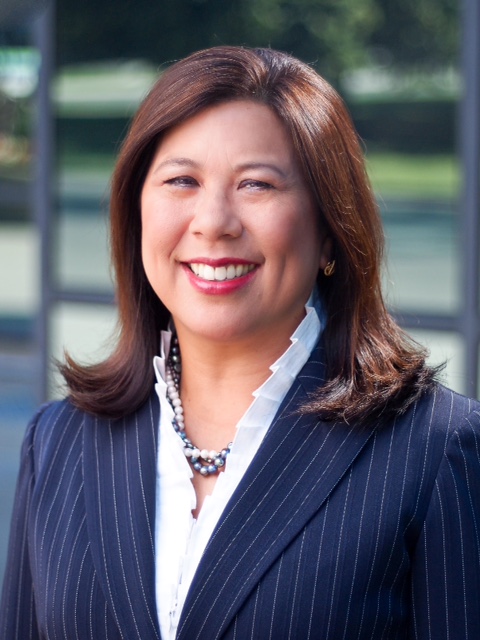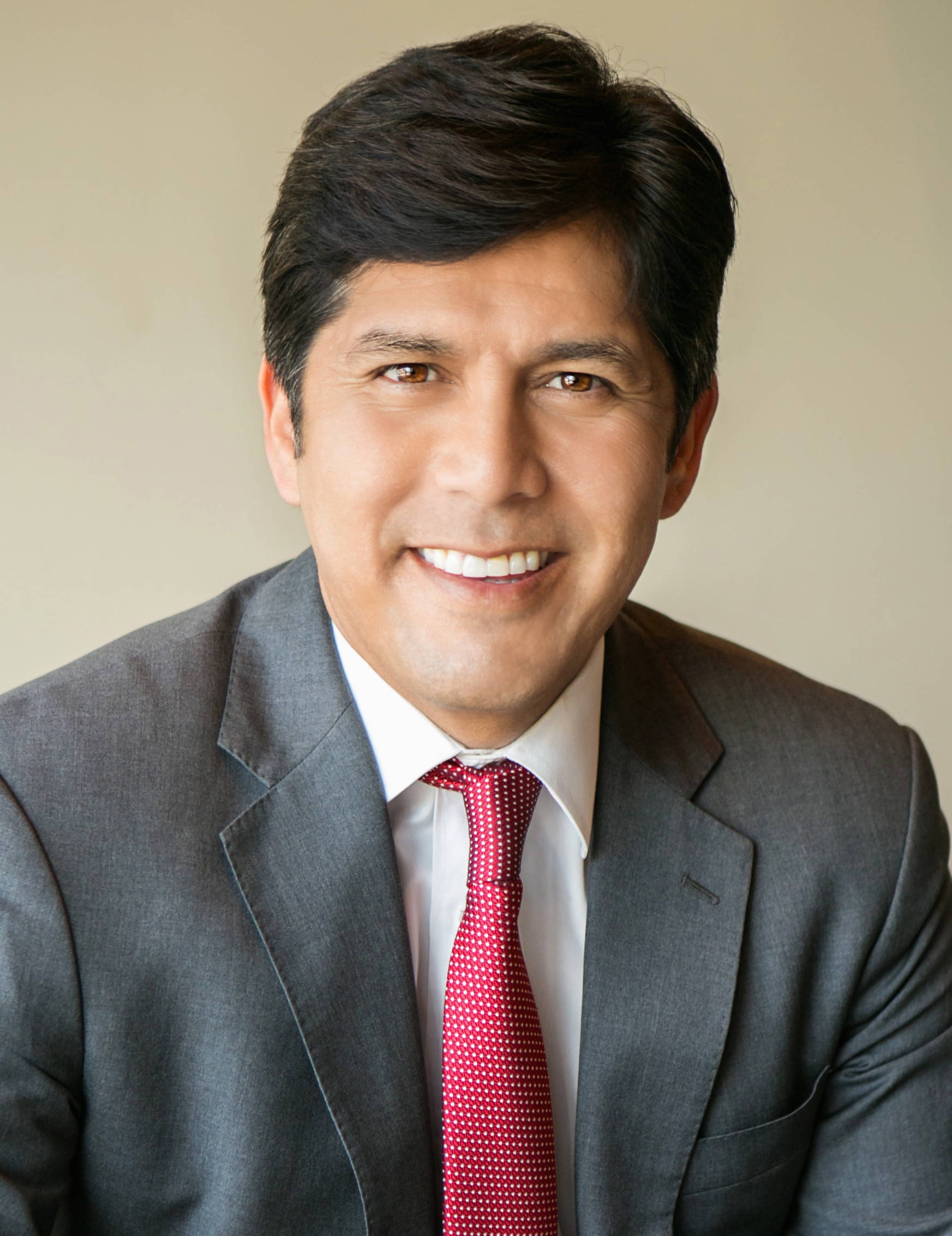Program presented in partnership with: 
Tesla revolutionized the electric vehicle market, which is of key importance to state and national goals for reducing emissions from the transportation sector. The company’s innovation is not only displayed in its pioneering ideas and its vehicles but also in its manufacturing. The Tesla Factory in Fremont is one of the world’s most advanced automotive factories. Tesla has occupied the 5.3 million square foot facility since 2010, and the first Model S rolled off the line in June 2012. The facility has gone through extensive remodeling since Tesla acquired it and is now capable of producing more than 100,000 vehicles annually.
On this tour, attendees will have the opportunity to tour the factory and learn about the innovation and efficiency that goes into manufacturing each vehicle that rolls out of the facility.
After touring the Tesla Factory, the tour will stop at the Lawrence Berkeley National Lab to visit a few of the lab’s world famous facilities and speak with scientists there.
Fee: $50
Urban forests bring some of the qualities of forest ecosystems right into the concrete jungle. Under the Climate Action Reserve’s urban forest protocols, urban entities are given the potential to participate in the carbon market through urban forest management and tree planting, which bring numerous co-benefits to nearby communities. However, despite the benefits and incentives, the development of offset projects has been slow to gain momentum. This tour will take an on-the-ground look at San Francisco’s urban forest management plan, with a focus on the history of urban forestry and how the city plan will be managed into the future. Tour attendees will learn about urban forest market incentives and management systems, the barriers that have existed in the carbon market and what is being done to help this project type take off.
Speakers:
Anne Brask, San Francisco Planning Department
Chris Buck, San Francisco Public Works
James Scheid, Calfire Urban Forester, Bay Area
Tour attendees should wear comfortable walking shoes and be prepared to venture around the city by foot.
Fee: $30
Forestry remains one of the most recognizable offset types. It has generated more offsets in California’s Cap-and-Trade Program than any other project type and remains a favorite of corporate offsetters. It is also one of the most complicated. This two-hour workshop will discuss the U.S. Forest Projects Compliance Offset Protocol in California’s program and the Reserve’s current effort to revise its voluntary protocol to stimulate activity among smaller landowners. We will also discuss the status of the Reserve’s Mexico Forest Carbon protocol. This workshop will be especially valuable for landowners, consultants, compliance and voluntary offset buyers, project developers and anyone interested in learning more about climate actions that involve forests.
Fee: $150
California’s Cap-and-Trade Program is the centerpiece of the state’s landmark Global Warming Solutions Act (AB 32) and has also served as a model for national and subnational governments around the world. With new promises on the U.S. federal level to repeal or significantly weaken federal climate regulations, California’s program now sits in a brighter spotlight as an effective initiative with strong government support.
This three-hour workshop will cover the basics of California’s Cap-and-Trade Program. Speakers will discuss how the program fits into AB 32 and SB 32, timeframes established under the program, compliance entities and their obligations and basic market structure. The workshop is an excellent primer for people starting to learn about the program and a comprehensive refresher course for people wanting to brush up on their Cap-and-Trade Program knowledge.
Fee: $150
Room: Laurel Hill
Climate change is one of the most important issues facing society. Yet the complexity of the topic and polarized views hamper efforts to communicate the urgency of the threats it poses. What are effective ways to communicate this pressing issue? A panel of journalists and scientists will discuss the challenges of communicating climate change and ways to engage various audiences.
Room: Nob Hill
Climate change politics giving you a headache? Come learn about voluntary offsetting in North America!
While politicians may bicker over whether climate change is real, businesses around the world have already taken action towards a low carbon future. In this session, Ecosystem Marketplace will present preliminary findings from our annual State of the Voluntary Carbon Markets 2017 report, with a focus on North American suppliers and buyers. We will highlight the latest trends in 2016 carbon offset demand, breaking out data by average price, project type, standard, and more. We’ll also present new data around buyer motivation for purchasing these offsets.
The Climate Action Reserve invites you to attend a workshop that will provide an overview of California’s Compliance Offset Program, exploring the process for submitting projects under Compliance Offset Protocols, verification of compliance offset projects and invalidation. The workshop will also cover important changes to the Compliance Offset Protocols and lessons learned from market participants and the Reserve in its role as an Offset Project Registry. This workshop will be useful for consultants, compliance offset buyers, project developers, policymakers, and anyone interested in learning more about California’s compliance offset program. It is being offered at a deeply discounted rate as an NACW pre-conference workshop.
Fee: $100
Agenda to be provided in April
Room: Nob Hill
CaliforniaCarbon.info are pleased to present their latest 2030 Integrated Carbon Price Forecast for the tripartite WCI carbon market.
Showcasing an in-depth analysis of the long term emission scenarios of covered sectors under the WCI cap-and-trade program, CaliforniaCarbon.info has developed a bottom-up econometric emissions forecast model. The model integrates sector specific forecasts for each of the program’s covered sectors across all jurisdictions. The forecasts delve into the complementary measures, sector-specific policy implications entwined with economic growth, and include in-depth analyses of inter-sectoral behaviour.
This 2030 Integrated Carbon Price Forecast is a first of its kind model available to the market, incorporating emissions from all three jurisdictions: California, Quebec and Ontario and all of their respective emitting sectors.
The final report also includes surplus-shortage analysis for different scenarios related to up-coming auctions and their impact on secondary market prices.
Continually providing the latest and most comprehensive analytics and market services to a wide range of stakeholders across the WCI carbon market, CC.info are delighted to be sharing their most recent model and look forward to exhibiting the new forecast at NACW 2017.
Carbon and climate policies on state, regional, national, and international levels are facing a number of legal issues that could significantly reshape or potentially halt them. For example, lawsuits currently are proceeding against the Clean Power Plan, California’s Cap-and-Trade Program, and the Low Carbon Fuel Standard, with unanswered questions about the future of these programs impacting various markets. Additionally, in the wake of the U.S. presidential election, there has been much speculation regarding the particular mechanisms that could be utilized to influence climate regulation. This workshop will assess the legal issues and mechanisms potentially reshaping carbon and climate policy. California MCLE credits available. This workshop is hosted by Latham & Watkins.
Fee: $245
Jurisdictional accounting frameworks for REDD+ have been under development internationally at both federal and state levels. Taking the lead from REDD+ principles, California is exploring a novel approach to calculating GHG emissions and reductions at the county level. We will discuss the general principles of jurisdictional accounting systems and the status of market opportunities to support them. We will focus on the evolution of jurisdictional accounting frameworks in California to account for the full suite of landcover classes, including agriculture, forests (including urban), grasslands, shrublands, and wetlands. The California framework will provide local planners with tools to develop and implement activities that align GHG reductions with environmental and social benefits. This strategy aims to align with national, state, and local climate policy incentives, such as NRCS conservation strategies, Greenhouse Gas Reduction Funds, and CEQA mitigation. This workshop will be of interest to county planners, farmers, ranchers, forest landowners, and other land managers.
Fee: $100
Room: Cathedral Hill
There are currently more than 1.5 billion cows on earth, with each one producing more carbon emissions than the average car. According to the UN FAO, the livestock industry, its supply chain and lifecycle of all animals raised for food is the third largest carbon emitter after energy, industry and more than the entire transportation sector. The hundreds of liters of methane belched by the cow each day, because of the enteric fermentation in its digestive system, is 84 times more powerful than carbon dioxide in the first 20 years of its lifespan.
As the world population is estimated to reach over 9 billion people by 2050, this will require an increase in annual meat and dairy production by hundreds of million of tonnes.
Livestock methane emissions are rising faster than CO2 requiring dedicated attention and raised awareness in its own right as it is more potent and hazardous in the global warming context. It is clear that livestock agriculture can and should be part of the immediate solution to tackling climate change. With the right innovative approaches, solutions and policies, we can reduce methane emissions while growing the industry and our economies.
This workshop will provide an overview of the current state of livestock agriculture and its direct and collateral impact and future projections. It will focus on the science of enteric fermentation and powerful methods for reducing livestock emissions. Finally, it will open dialogue about how these emissions can be measured and packaged for the carbon markets – demonstrating clear economic and market incentives for the industry to drive sustainability throughout the livestock supply chain.
Room: Union Square
The renewable gas market is about to take off in California and other parts of the country as renewable gas provides an important strategy to reduce Short Lived Climate Pollutants from organic waste and carbon emissions from the transportation, electricity and industrial sectors. Renewable gas provides the lowest carbon transportation fuel of any kind – including the only fuels that are certified as carbon negative by the California Air Resources Board. Increasing renewable gas production and use is also critical to reducing emissions of the most potent climate pollutants, known as Short-Lived Climate Pollutants, such as methane and black carbon. Converting organic waste to renewable biogas can dramatically cut black carbon from wildfire, from diesel truck emissions, and can also cut methane from livestock, landfills and other facilities. Creating renewable gas from excess renewable power can also provide an important and cost-effective form of energy storage for solar and wind power.
Mexico has recently released plans to develop a national Emissions Trading Scheme with the intent to launch simulations in 2017. Currently, Mexico has an emerging voluntary carbon market with a functioning trading platform (Plataforma Mexicana de CO2), and, in 2014, established a carbon tax that potentially allows businesses to apply certain offsets to comply with the tax.
The Climate Action Reserve has developed several voluntary protocols for offsets in Mexico, including Forestry, Livestock, Landfill, ODS, and Industrial Boiler Efficiency. The Reserve has been working with Pronatura and other partners in Mexico to complete the first verification of the Forest Protocol’s pilot project in San Juan Lachao, Oaxaca. This project sold its initial round of credits on Mexico’s trading platform in early 2017.
This two-hour workshop will discuss various market-based mechanisms emerging in Mexico, the increasing interest in the Reserve’s Mexican Forest Protocol, and the general role of offsets within these frameworks, highlighting recent achievements and lessons learned. This workshop will be presented by the Climate Action Reserve, Pronatura and other stakeholders engaged in the Mexican offset market
Room: Sutter
The world needs an estimated US$90 trillion in sustainable infrastructure investments to reduce climate risk and achieve the global greenhouse gas reduction goals set in the Paris Agreement. In order to attract and grow the financing we need, the markets must have transparent information about an investment’s GHG impacts. To help meet this need, the Climate Action Reserve has combined its expertise in developing standardized methodologies, reputation for integrity, and insights and counsel from leaders in the energy and finance sectors to develop an innovative new program called Climate Impact Score™. Climate Impact Score is a decision-making tool that allows the finance community to understand the GHG reduction potential of investment products across asset classes. This workshop will discuss the power and importance of knowing the GHG impact of investments and the role Climate Impact Score can play.
Room: Nob Hill
The California-Quebec carbon market has faced a turbulent 15 months as five consecutive auctions have gone undersubscribed and 143 million jurisdictionally-owned allowances are currently being withheld from the market. The return of these allowances to auctions will depend in part on future market participants’ behavior and could have a short-term impact on the supply-demand fundamentals. This session will explore how market dynamics are being impacted by entities opting out of auctions and what impact that could have on the future market balance.



Room: InterContinental Ballroom
The federal governments of Canada, the U.S. and Mexico are approaching climate action in different ways, but remaining very steadfast and consistent over the years has been the approach of many North American subnational governments. The spotlight on California’s pioneering climate initiative got brighter when it declared its unwavering commitment to continue addressing climate issues despite opposing opinions and initiatives on the U.S. federal level. North of California, Canadian provinces have also continued to forge ahead with aggressive climate initiatives, some of them in cooperation with the Golden State. In this session, leaders from California, Ontario, Québec and Mexican states will discuss their individual and cooperative efforts to keep North American climate leadership strong.



Path 1: Markets and Finance
2016 saw considerable activity in North American compliance carbon markets, producing a different landscape from what existed just a year ago. In California, the California Chamber of Commerce lawsuit against the California Air Resources Board cast a chill on the carbon market and a shadow of doubt over its future. Yet, the California and WCI markets forged onward, including administering the 10th joint California/Québec auction in February 2017. Ontario launched its carbon market January 1, 2017, and prices in the RGGI market fluctuated. This session will examine the current state of the North American carbon markets.





Path 2: Subnational Leadership
Work across Canada to reduce emissions continues to develop at a strong pace as Canadian provinces take the lead developing climate policy initiatives. These range from carbon tax to cap-and-trade to legislative actions impacting certain sectors. This session will discuss the breadth and status of the provincial and federal efforts and their programs, market size and linkages with the Western Climate Initiative.




Path 3: Climate Initiatives and Policy
A historic agreement was forged in October 2016 when the 191 member states of ICAO agreed to implement a Carbon Offset and Reduction Scheme for International Aviation (CORSIA). The agreement represents the first global scheme covering an entire industrial sector and will start mandatory compliance after a voluntary period from 2021-2026. Given that air transportation is responsible for 12 percent of emissions from the global transportation sector, the potential impact of CORSIA is significant, and the tools needed to comply with the scheme are also significant. This session will discuss the status of the development of CORSIA, the impact it could have and what experts are saying.





Path 4: LCFS Sessions
As the electrification of transportation and goods movement continue to transform the energy industry, the economic opportunities and GHG mitigation potential of renewable fuels remain a crucial pathway to achieving ARB’s goal of furthering carbon intensity reductions, with the Scoping Plan floating targets between 18-25% by 2030. Combined with ARB’s emphasis on the SLCPR strategy, renewable natural gas and other alternative fuels are positioned to play a larger role in the Low Carbon Fuel Standard (LCFS) market. This session will explore whether the industry can create supply at a pace commiserate with regulatory requirements, the economic feasibility and market incentives of bringing renewable fuels online, and how the trend towards electrification may impact the LCFS market.





Path 1: Markets and Finance
Growth is on the horizon for the North American carbon market. Ontario’s cap-and-trade program launched January 1, 2017 and the province is continuing plans to link with the California/Québec markets in 2018. Other Canadian provinces are also looking at different options for pricing carbon, and there has been talk about European jurisdictions joining the North American market through WCI. South of the U.S. border, Mexico is moving forward with a carbon market pilot ETS. And, offsets expanding beyond North America is still a possibility. What does the future of the North American compliance and voluntary markets look like? What players and influences may have significant impacts in their continued development?






Path 2: Subnational Leadership
Cities and counties have often been recognized as the levels at which climate actions can be planned and implemented the fastest. These local jurisdictions have a keen awareness for their specific issues – including adaptation, environmental justice issues and social benefits – and ways to address them. This session looks at pioneering programs happening at the city and county levels, what makes them different from state and federal level initiatives and results that have already been generated.





Path 3: Climate Initiatives and Policy
Under the Trump administration, the approach to climate action on the U.S. federal level is dramatically different from what it was a year ago, prompting many states to double down on their commitments to continue aggressively addressing climate change. Many have been vocal about their intent to forge onward with their climate initiatives, including reducing greenhouse gas emissions, and some have put forth a rallying cry to states to work collaboratively, especially in the absence of federal regulations. In this session, state representatives will discuss actions their respective states are taking now, what they plan for the future and how they are interacting with the new federal approach to climate action.




Path 4: LCFS Sessions
Since the implementation of California’s LCFS, obligated parties have leveraged the national market for renewable fuels created by federal Renewable Fuel Standard (RFS) to augment their LCFS compliance efforts. Additionally, international imports of biodiesel and renewable diesel reached record highs in 2016 driven by the RFS, LCFS, and the blender tax credit. While it’s seen as unlikely that the RFS’s 2017 volume mandates will change, the rule has been held up with EPA’s broad delay of pending regulations, which is creating uncertainty around the future of the RFS and RVOs under the Trump administration. How will these changes affect RINs and the LCFS market? What’s the outlook for international trade and domestic production in light of possible reforms to the lapsed blenders tax credit?





Path 1: Markets and Finance
Solving climate change requires significant investments in low and zero carbon programs, technologies and infrastructure. Sources of public and private capital have been pledged, but connecting those dollars with actual activities is not straightforward. Innovative approaches to financing are needed to bring significant dollars to small-scale projects, as well as to attract the interest of large investors, who tend to avoid risky or unproven investments. Exciting advancements have been made, such as the development of green banks and industry efforts toward increased transparency and standardization. This session will discuss successful public and private efforts to attract investment to low and zero carbon activities, as well as approaches to transparency for climate finance. The topics will be covered at the ground level, getting into the details of initiatives and funding for individual climate projects.





Path 2: Subnational Leadership
California and its bold, pioneering climate policies have always been in the spotlight, but the Golden State has repeatedly stated climate change is a global issue and it has no intentions of tackling the challenge single-handedly. One of the state’s initiatives to join global forces is the Under2MOU. Currently, 165 jurisdictions from 33 countries, collectively representing 1.08 billion people and 35 percent of the global economy, have signed or endorsed the Under2MOU. In this session, MOU signatories will talk about their jurisdictions’ climate initiatives, the power in joining forces and exactly what the Under2MOU coalition hopes to achieve.






Path 3: Climate Initiatives and Policy
The Trump Administration and Republican-controlled Congress have called for significant changes to climate and energy policy and federal agencies that oversee those policies. Procedural and legal obstacles may make fulfilling those vows difficult, however. What actions and policy changes are likely and under what realistic timeframes can these take place? What actions are being considered to have a positive impact on reducing emissions? This session will discuss what actions have been taken to change federal climate and energy policy, changes in store for federal agencies and initiatives to support existing policies.






Path 4: LCFS Sessions
California’s LCFS has entered its eighth year of implementation. The Air Resources Board’s recent focus has been the development of a third-part verification program and updates to processes for reporting, credit generation, and pathway carbon intensity evaluations. This session will look at what considerations are necessary to ensure a governance structure reflective of the global nature of this commodities market, and how ARB can incorporate existing international standards to create cost effective certification schemes that cover complex supply chains and diverse feedstock sources.




Room: InterContinental Ballroom
International action on climate change has reached unprecedented levels in the last few years. The Paris Agreement reflects a global consensus that all nations urgently need to do their part to reduce emissions and create a low/zero carbon global economy for the 21st century. The Kigali Agreement stipulates specific targets and timetables to eliminate high global warming potential HFCs from global use. The global aviation industry has also stepped into the limelight with CORSIA. This session will assess where the world stands today, how the Trump administration could affect these actions and what steps can be taken to protect global progress on climate change.





Meeting climate goals established in agreements, like the Paris Agreement and CORSIA, and national and subnational regulations requires innovation and leadership from not just national levels but also from nonprofit and corporate levels. These other two groups play critical roles in driving initiatives, developing climate solutions and encouraging their audiences to take meaningful actions. Speakers in this session will discuss the initiatives they are spearheading and the importance of collaboration and engagement among nonprofit and corporate stakeholders.





Path 1: Markets and Finance
Land conservation requires the use of multiple financial tools, such as easements, government payment programs, sustainable certification programs and others. In recent years, the demand for charismatic offsets has led to the use of carbon markets as a new revenue source for supporting the conservation of natural lands. The offset market has produced success stories in the avoided conversion of forest land, grassland and rangeland, and these success stories have attracted the participation of landowners, ranchers and financiers, including the USDA’s Natural Resources Conservation Service. What are the strengths and weaknesses of using GHG offsets or GHG auction revenues for conservation finance? How do carbon markets compare with other conservation finance mechanisms and what kinds of financing strategies exist that combine carbon markets with some of these other mechanisms? How large can the conservation finance sector grow and what is the potential impact it can have on the carbon market?





Path 2: Subnational Leadership
The California Air Resources Board recently released a Scoping Plan Update that maps out the state’s plan for meeting the 2030 goal of reducing GHGs 40 percent below 1990 levels. This requires reductions across every sector with a focus on energy efficiency, renewable energy, short-lived climate pollutants, decarbonizing transportation, natural and working lands and others. This session will discuss the myriad of measures aimed at reducing GHGs across the state, how effective they have been and what we can expect to see in California’s low carbon future.






Path 3: Climate Initiatives and Policy
What are the major sources for investment in climate change mitigation and adaptation projects, and is there more that can be done to enhance the flow of capital? The UNFCCC COP-16 in Cancun solidified the creation of a robust Green Climate Fund through which developed countries can provide financial assistance to developing countries for both mitigation and adaptation projects, and the 2015 Paris Agreements strengthened the commitments of those developed nations to contribute. Additionally, analysis suggests that $90 trillion in sustainable infrastructure investment is required to reduce climate risks in line with the Paris Agreement. Where will these funds come from, and what policies can be put in place to encourage mobilization of these funds? How is private capital being engaged on this large scale? This session will discuss the current activities and future opportunities for stimulating climate finance. The topics will be covered at a high level, not getting into the details of individual climate projects.






Path 4: Technical Sessions
Developing and verifying forest carbon inventories is challenging and costly. This technical session will take a deep dive into the intricacies of developing a forestry inventory and verifying inventories. It will also present new tools, such as the Climate Action Reserve’s Inventory Tool (CARIT), that are expected to improve the accessibility of inventory development to smaller landowners and reduce development and verification costs.





Path 1: Markets and Finance
In California’s market, the use of offsets, which is a key component in the state’s cap-and-trade program, is facing opposition from the environmental justice community and market players lack certainty over the continuation of cap-and-trade beyond 2020. At the same time, offset protocols are being developed as a robust component of programs in Ontario and Québec, while Mexico is developing a role for offsets in its future market. Further, the voluntary market has continued to see steady levels of interest, both in new project types like the Reserve’s Grassland Project Protocol and longstanding project types like landfill. What will be the future role of offsets in these jurisdictions? What does the future role of offsets look like in compliance and voluntary markets?





Path 2: Subnational Leadership
Part II of this session will continue the discussion of what we can expect to see in California’s low carbon future. With the passage of SB 32 in 2016, California’s landmark climate action legislation has been extended from 2020 to 2030, but what is the future of its signature cap-and-trade program? Will LCFS survive the negotiating table and could the state meet the 2030 target without cap-and-trade? This session will also discuss what impact the Scoping Plan will have on California’s tools for addressing climate change and if planned efforts to prioritize disadvantaged communities will be enough.






Path 3: Climate Initiatives and Policy
The outlook for the U.S. EPA’s Clean Power Plan is considerably different from just a year ago. When the federal agency issued its landmark regulation limiting CO2 from existing power plants, the regulation was met with both lawsuits and support, and its fate was being played out in the courts. Now, as the CPP continues to make its way through the courts, the rule faces more forceful challenges as the Trump Administration works to dismantle it. Yet, rolling back the rule will not be simple. Even if the CPP is successfully revoked, the endangerment finding and Supreme Court precedent suggest that the EPA must regulate carbon under the Clean Air Act. This session will look at the current status of the CPP and how its future may play out.






Path 4: Technical Sessions
Agricultural offsets are relatively new to the carbon market space and to-date, project development has been limited, partially due to the limited experience and knowledge of the agriculture sector by carbon market players and partially due to high transaction costs associated with this project type. This technical session will provide project developers and verifiers with a detailed look at the agricultural offsets landscape and a current overview of developing and verifying agriculture offset projects. The session also will discuss what is being done to reduce transaction costs and drive adoption of agriculture protocols by working landowners across the U.S.





Path 1: Markets and Finance
California’s cap-and-trade allowance auctions generate billions in revenue for the state. Proceeds go to the California Climate Investment Program (formerly the Greenhouse Gas Reduction Fund) and are invested in numerous projects that reduce emissions and improve the environment, economy and public health in California communities. Under the statutory framework provided by the legislature, expenditures must achieve GHG reductions, with significant proceeds going to projects directly within and benefiting disadvantaged and low income households and communities. This session will cover how programs will achieve emissions reductions and address environmental justice in low income neighborhoods and communities of color, and how the revenue shortfall in 2016 impacts that effort.





Path 2: Subnational Leadership
The Paris Agreement recognized tropical deforestation as an ongoing major source of global emissions and endorsed an approach to compensate tropical forest countries for actions that conserve forests. At the same time, states and provinces across the tropics have been moving forward with efforts to protect forests, reduce emissions and enhance livelihoods at jurisdictional scale. California has also been exploring how its cap-and-trade system could include offsets from tropical forest jurisdictions since an MOU was signed to establish the Governor’s Climate and Forest Task Force in 2008 and a subsequent MOU was signed with Chiapas and Acre in 2010. This session will explore actions taken by subnational entities, including California’s offset market, to support tropical forest conservation.





Path 3: Climate Initiatives and Policy
Electric vehicles (EV) are just beginning to make major inroads into the market. Certain states, such as California, have aggressive programs to encourage EV development and deployment, but charging times, range limitations and costs continue to hamper this technology. Nevertheless, the pace of technological improvements is generating much interest in electric vehicles. This comes at a time when more conventional engine options are under increased scrutiny, including the difficulties of meeting new mileage standards and challenges to conventional vehicles in light of the VW and related scandals. This session will explore the current state of EV technology, the potential for near-term developments to revolutionize the automotive market, current strategies in place to foster the adoption of EV technologies and challenges to succeeding in a complex, global transportation market.




Path 4: Technical Sessions
One technical element of California compliance offset projects that is not widely discussed yet carries very significant implications is the legal issues surrounding projects. Successful navigation of legal issues can help mitigate risk carried with the project. This technical session will take a close, detailed look at issues such as ARBOC purchase agreements, areas of risk in contracts and ownership issues.
































































































































